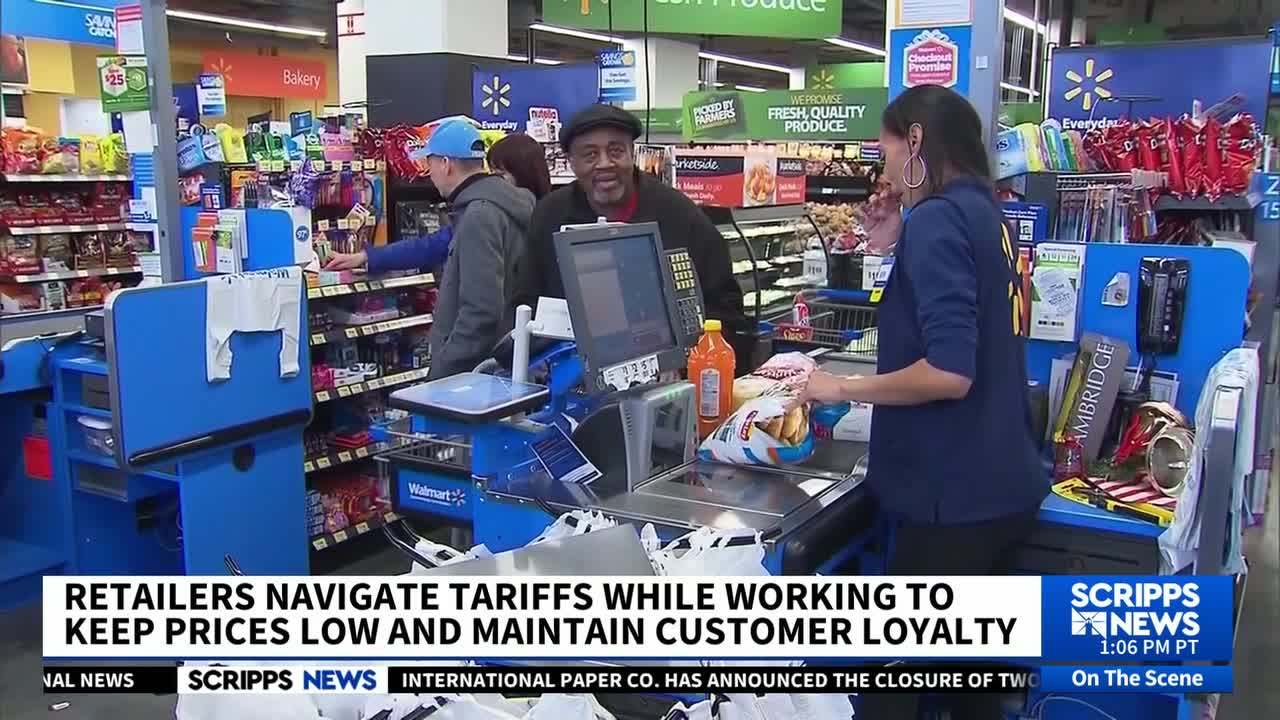Major U.S. retailers are deciding whether to pass higher costs from tariffs directly to consumers and risk losing them, or absorb the increases and hope shoppers remain loyal.
Walmart, a bellwether for U.S. retailers, on Wednesday reported a jump in second-quarter sales. CEO Doug McMillon said the company is working to avoid raising prices, but costs for new inventory are climbing.
"We're keeping our prices as low as we can for as long as we can," he said. " ... As we replenish inventory at post-tariff price levels, we've continued to see our costs increase each week, which we expect will continue into the third and fourth quarters."
ADDITIONAL REPORTING | New economic indicators show the costs of Trump's tariffs are creeping into Americans' budgets
Target, Lowe’s and Home Depot also reported earnings this week, each pointing to challenges from tariffs. Target leadership said Wednesday that price increases are a "last resort."
Keith Niedermeier, director of the Center for Brand Leadership at Indiana University, said retailers may be willing to take a short-term hit to keep shoppers happy.
"It's a tough situation because eating the price hikes is not a long-term strategy," Niedermeier told Scripps News.
"Short-term firms that are not passing along the price increases are buying a lot of goodwill with their customers. There's no doubt about it," he added. "The question is, is that a good long-term strategy, which no one really knows quite yet because we don't know how long these tariffs are going to last."
IN RELATED NEWS | Tariff engineering: The legal way companies avoid paying higher import taxes
Some companies are responding with discounts to attract customers. Kohl’s has expanded its coupon policy, while Target has added inexpensive “mini” beauty products. McDonald’s is also set to lower the price of its combo meals next month, according to the Wall Street Journal.
Retail spending, meanwhile, was up in July for the second consecutive month. Still, any price hike is likely to hit lower- and middle-income consumers hardest. McMillon said those shoppers are already making adjustments to what they buy.
This story was initially reported by a journalist and has been converted to this platform with the assistance of AI. Our editorial team verifies all reporting on all platforms for fairness and accuracy.





